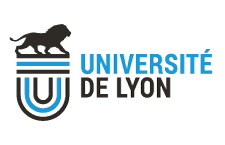Quantum Engineering
Quantum Engineering (UE S1-4)
The aim is to give a teaching on “quantum engineering” applied to nanotechnologies, starting from concrete developments such as nanoparticles for biology, nanostructures for optoelectronics… Those examples will introduce fundamental discussions about quantum mechanics.
Numerical modeling tools will be used throughout the lectures to allow easier appropriation of quantum basics concepts and to study more complex systems.
Numerical modeling tools will be used throughout the lectures to allow easier appropriation of quantum basics concepts and to study more complex systems.
Outline of the course
- Fundamentals of quantum mechanics and their applications
- Quantum states and their superposition
- Measurements, observables and operators
- Collapse of wave packets
- Heisenberg uncertainty relations
- The Schrödinger equation
- Application to tunneling microscopy
- The one-dimensional well and confinement effects in semiconductors
- Perturbation theory
- Confined Stark effect
- Emission and absorption of light
- Quantum nanodevices
- Quantum confinement and microelectronics
- Schrödinger-Poisson coupling (small MOS, HEMT)
- Transport phenomena in low-dimensional systems
- Transport phenomena in planar systems (e.g. HEMT)
- Tunnel effects (MOS, RTD)
- Nanoelectronic with single electrons
- Coulomb blockade
- Single-electron transistors
- Confinement and optoelectronics
- Confinement and charge carriers
- Combined confinement of charge carriers and photons
- Single-photon sources
- Quantum information and communication
- The quantum bit exemplified by the photon
- Quantum cryptography
- Entanglement, Bell inequalities and the Aspect experiment
- Quantum teleportation
- Examples of simple quantum-computing algorithms
- Classical information versus quantum information
- The problem of decoherence
Evaluation
- Intermediate written exam
- Final written exam
course volume
- lecture: 22h
- tutorial: 6h
- seminar: 2h
- ECTS: 3



 WebAdmin
WebAdmin

